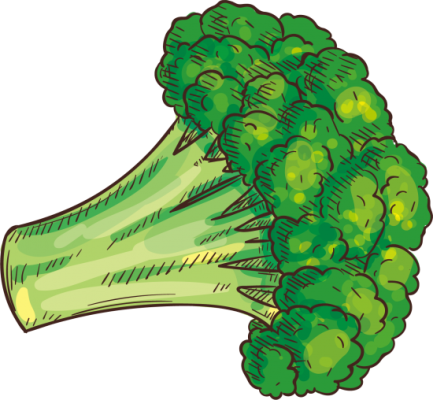Top 3 Foods to Reduce Your Breast Cancer Risk
Sometimes it’s good to get back to the basics. When it comes to your Healthy Breast journey, this means remembering Essential #1 – “Let Food Be Your Medicine.” There is a reason why diet is the focus of the first Essential of the 7 Essentials System®. When it comes to beating Breast Cancer, how you eat may be the most important factor of all.
Food Is Medicine
According to the MD Anderson Cancer Center, 90-95 percent of all cancers are caused by a combination of lifestyle, diet and environmental factors. In fact, diet was considered by the researchers to be more important than smoking in determining cancer risk.
It makes sense that upping your consumption of fresh, organic, non-GMO vegetables and lowering consumption of meats and sugar are major steps in the right direction. When it comes to preventing cancer, however, there are some key vegetables that you could be eating every week that can slash your risk of Breast Cancer significantly.
The Top Three Foods That Can Slice Your Breast Cancer Risk
#1 Cruciferous Vegetables
If you have been reading my blog for a while now, then you know about the wonders of broccoli. Broccoli sprouts in particular contain sulforaphane, a phytonutrient that has the ability to kill Breast Cancer stem cells. Sulforaphane also turns in over 200 genetic switches – everything from anti-cancer, anti-inflammatory and detoxification support.
What you may not know, however, is that all cruciferous vegetables are cancer-protective. Besides broccoli, these include:
-arugula
-Brussels sprouts
-kale
-turnips
-collars
-radishes
-cauliflower
Research has found that certain phytonutrients in all of the above can protect your DNA from free radical damage.
How these vegetables specifically protect against cancer is quite amazing. Reactions occur when these vegetables are broken down through chopping, blending or chewing. Byproducts of the phytonutrient glucosinolate are released as well as an enzyme called myrosinase. When these two compounds connect, they create a chemical reaction that produces substances called isothiocyanates (ITCs). According to a 2009 Chinese study and others, ICTs have been shown to stimulate cancer cell apoptosis, or cancer cells self-destruction.
#2 Mushrooms
I could write a whole article on the cancer-protective effects of mushrooms, and in fact I have!
Science now confirms that mushrooms can and do prevent Breast Cancer.
Probably no other study proves this point better than the ground-breaking investigation conducted at the University of Western Australia in Perth. The researchers studied the eating habits of 2,000 Chinese women, roughly half of whom had Breast Cancer. After they took into consideration other variables such as smoking, they discovered something remarkable. Those women who consumed the equivalent of about one typical-sized mushroom per day (about 10 grams) were 64 percent less likely to develop Breast Cancer.
The Australian researchers and others have also connected mushrooms with substances that inhibit an enzyme called aromatase, which is vital for estrogen production. This is one of the reasons why mushrooms are great for protecting against reproductive cancers.
Be sure to try my Walnut Mushroom Bolognese for a delicious meal that is cancer-protective to boot!
#3 Celery.
And finally, there is celery. It’s true that celery is not the most exciting veggie around, but it is actually a cornucopia of cancer-busting and immune boosting nutrients.
Celery is chock-full of vitamins C, K and A as well as lots of potassium. Eating celery has been found to reduce an overactive nervous system, reduce inflammation, lower blood pressure and aid in digestion.
It also contains some pretty heavy-hitting cancer-protecting phytonutrients like luteolin and apigenin. These are both antioxidant flavonoids. Luteolin has been found to be able to “short-circuit” the mechanisms of cancer cell reproduction. Apigenin, on the other hand, is more well known for its ability to induce apoptosis.
A 2013 study conducted by Guangdong Pharmaceutical University in Guangdong, China found that apigenin was able to kill up to 86 percent of lung cancer cells in a laboratory model. Other studies have connected consuming celery in general with protection from ovarian, prostate, pancreatic, liver, and Breast Cancer.
Click here for the full article on BreastCancerConqueror.com





















